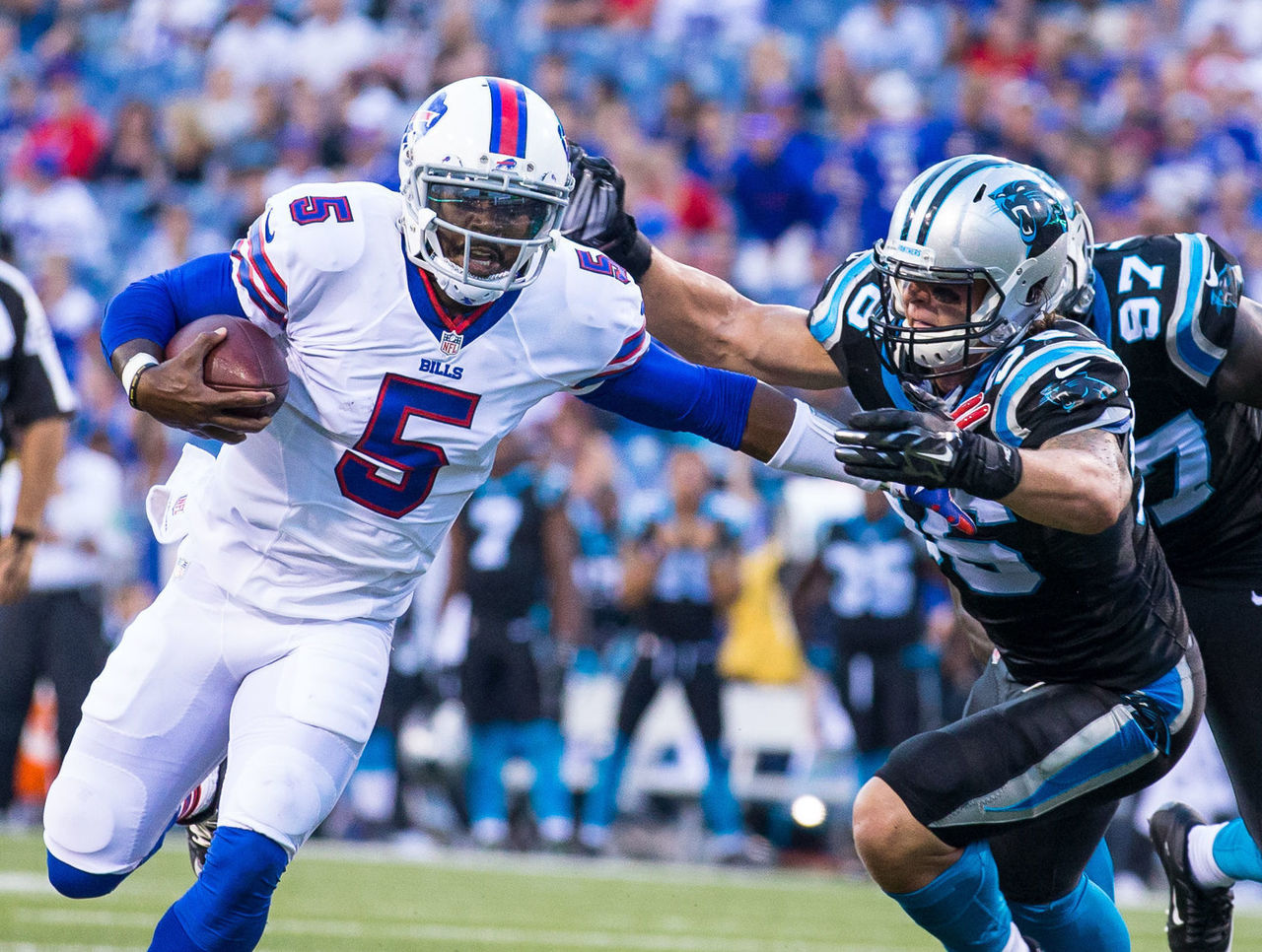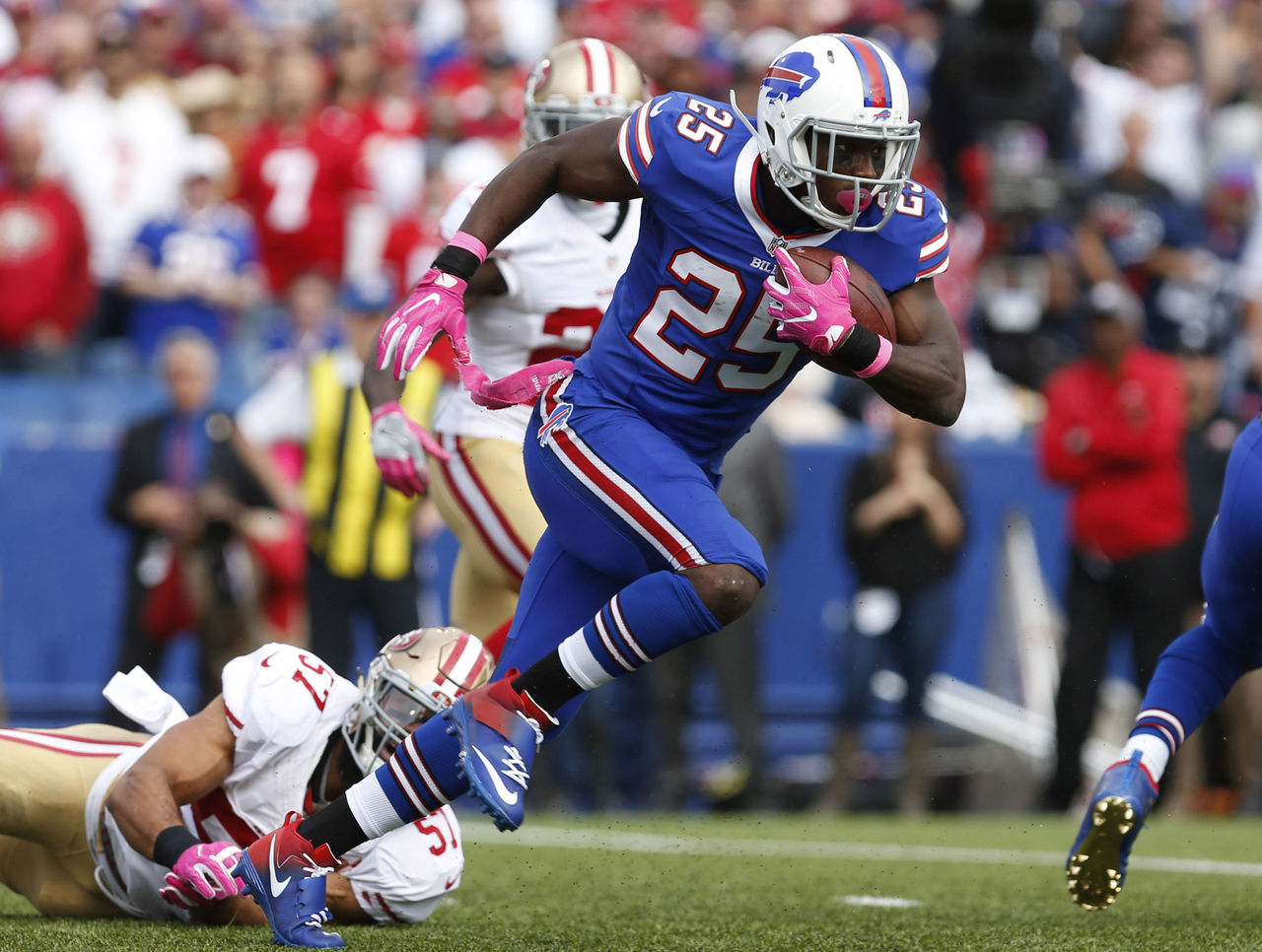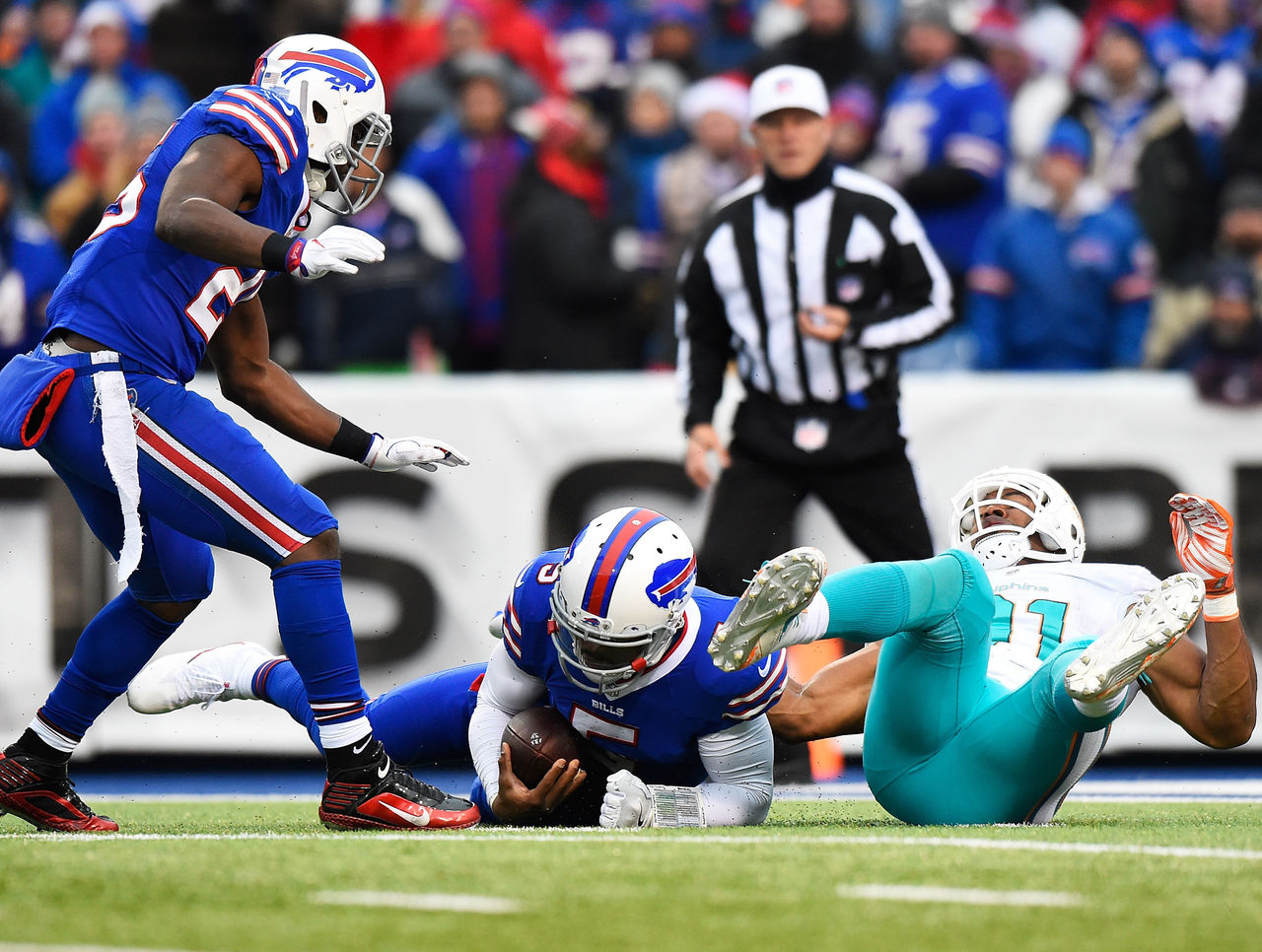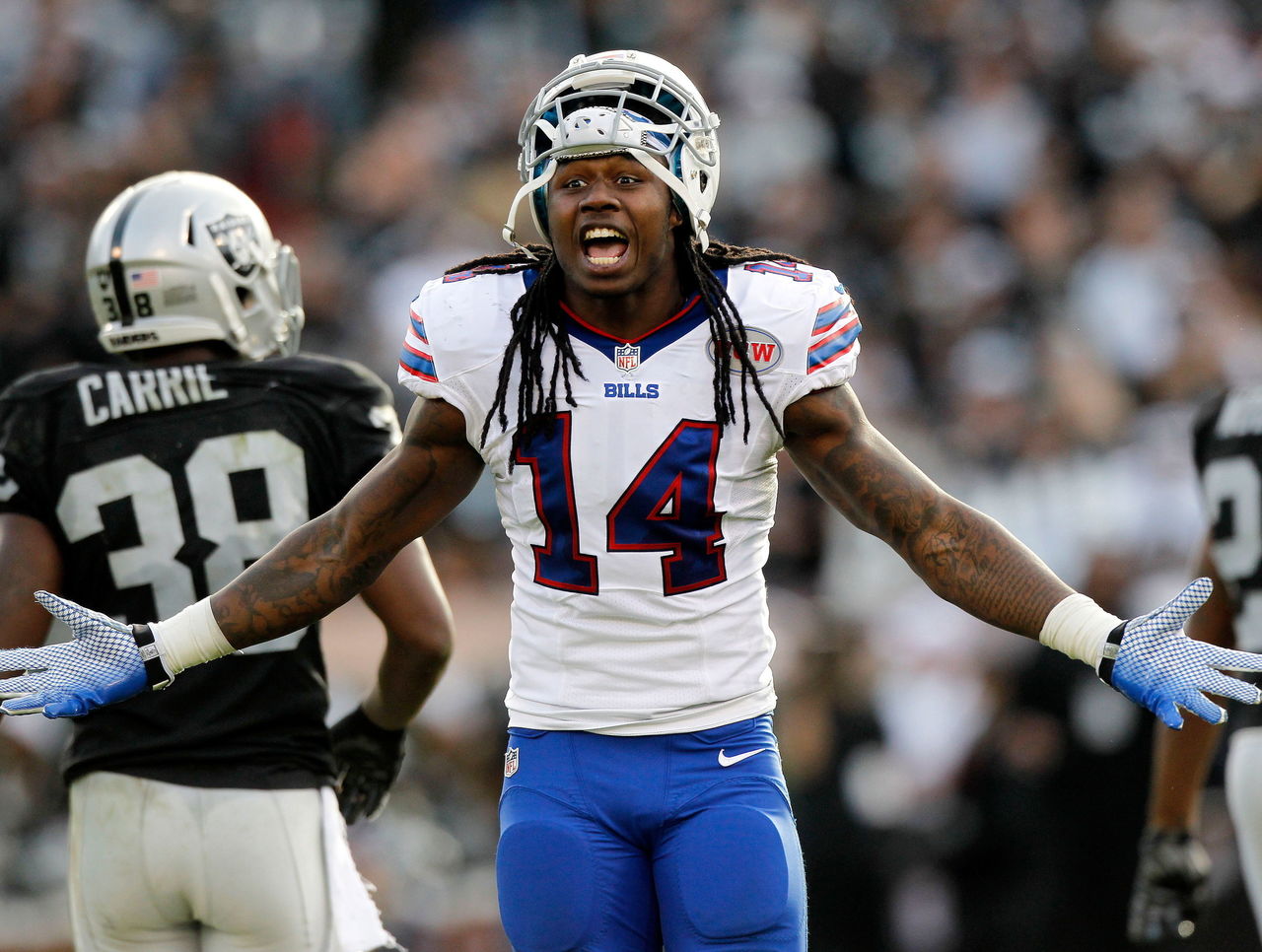Sage Rosenfels column: Bills need improved passing game to end playoff drought
Sage Rosenfels is a former 12-year NFL quarterback who writes, does radio, and podcasts about the NFL and college football.
It has been a long 21st century for the Buffalo Bills and their fans.
The Bills had Tyrod Taylor at quarterback in 2016, and entered the season with Sammy Watkins as their go-to receiver. After another season of injuries for Watkins, the Bills ended the season near the bottom of the league in passing offense. They also missed the playoffs - again. And, per usual, they had to watch the division-rival New England Patriots win the Super Bowl. Again.
With Taylor and Watkins back for another shot at the Pats, the Bills have to improve their passing game to end their 17-year playoff drought. Yes, I said that correctly. The Bills have not made the playoffs since 1999. A different Bill - Patriots coach Belichick - joined New England in 2000 and has produced unprecedented success.
What do the Bills have to change on offense to compete in the AFC East and find their way back to the playoffs? It doesn't take a rocket scientist to see that their passing game needs a jolt.
The 2016 Bills finished 30th in the league in passing offense; only the L.A. Rams and San Francisco 49ers were worse. As bad as the Cleveland Browns' and Houston Texans' passing attacks were last year, they were still better than Buffalo's. And the kicker, in my honest opinion, is that Taylor is a better quarterback than anyone those four teams had on their rosters.

(Photo courtesy: Getty Images)
Taylor has had an interesting career so far in the NFL. He was drafted in the sixth round by the Baltimore Ravens in 2011 and backed up Joe Flacco for four years before joining the Bills in free agency. Since arriving, Taylor has played at a high level yet hasn't received much positive attention in the national media. This is not something new to Bills fans.
Taylor's stats as a starter are more than respectable; he has a quarterback rating of 95 over the past two seasons and has been fantastic at protecting the football as well, throwing only six interceptions each year. Combine that with 37 touchdowns and over 1,000 yards rushing, and it makes me wonder why Taylor had to take a drastic pay cut this year to remain in Buffalo.
Yet, there are a few things missing from Taylor's resume. First, the Bills haven't made the playoffs, winning eight and seven games respectively. I don't expect the Bills to overtake the Patriots until Tom Brady retires, but this team can still win nine or 10 games and sneak into the playoffs with a wild card, just as the Miami Dolphins did last year.
The second element the Bills are missing: big plays in the passing game. This is the key to their future. The Bills were first in the NFL in big plays last year but finished fifth from the bottom in big plays through the air with only 23. Buffalo had an incredible 77 big plays on the ground, five more than the Dallas Cowboys (who got all the hype).

(Photo courtesy: Action Images)
How do the Bills get more explosive in the passing game? Let's start with that same rushing attack. LeSean McCoy and Taylor, form the most dangerous running back/quarterback rushing tandem in the league. This should not change under new offensive coordinator Rick Dennison. Coming from the Mike Shanahan/Gary Kubiak/Kyle Shanahan tree of NFL offenses, Dennison is an expert in the zone running scheme.
More importantly, the counterpart to that style of rushing attack is the explosive play-action concepts which have been hurting NFL defenses for two decades. Quarterbacks like John Elway, Brian Griese, Jake Plummer, Matt Schaub, Flacco, Kirk Cousins, and Matt Ryan have excelled in this style of offense. Other than Plummer, this group isn't exactly filled with mobile, athletic quarterbacks - yet, all were extremely effective in this type of scheme.
In the NFL, it's hard to drop back and heave the ball deep down the field. Defensive lines have become so athletic that no NFL offensive line can protect consistently for the time it takes to throw it deep. But in Dennison's offense, the precision in the zone running game sets up multiple ways to throw the ball, as well.
Defenses will undoubtedly be keying on McCoy, who had over 1,200 yards rushing last year. Dennison will design a wide variety of bootleg and play-action schemes to take advantage of the attention McCoy will receive. These concepts allow the quarterback much more time in and out of the pocket as the defensive line must play the run first.
This style of offense also minimizes quarterback sacks, something the Bills struggled with in 2016. You would think that having one of the NFL's best rushing attacks - as well as one of the league's most athletic quarterbacks - would mean very few quarterback sacks. But Taylor was sacked 46 times last year, fourth worst in the NFL.

(Photo courtesy: Getty Images)
This will not be the case in Dennison's offense. Along with the rushing and play-action schemes, Dennison will install a heavy dose of quick passes to get the ball out of Taylor's hand. This style of offense will keep the Bills away from challenging third-and-long situations, which usually lead to more sacks.
Most importantly, this offense needs a go-to wide receiver.
The Shanahan/Kubiak/Shanahan/Dennison scheme has had receiver after receiver put up huge numbers. In Denver, it was Rod Smith and Ed McCaffrey. Kubiak and Kyle Shanahan then made Andre Johnson into the best wide receiver in the league. A few years later, Kyle helped Julio Jones become the most dangerous threat to secondaries in the NFL.
This type of offense knows how to get the football to its best playmakers - and Watkins has to be that player for the Bills.
Watkins has not lived up to the expectations that comes with a player taken fourth overall in the draft. Like Jones, Watkins was acquired by a team that traded multiple first-round picks to move up for him. But unlike Jones, Watkins has been regularly hurt in his first three seasons, ending his 2016 campaign with only 28 catches.
After having his fifth-year option declined, this season has become a contract year for Watkins. If he can stay healthy, Watkins should be thrilled with the situation he is currently in.

(Photo courtesy: Action Images)
For starters, Watkins has similar size and explosiveness as both Johnson and Jones. This offensive scheme fits his strengths in every way. The excellent rushing game - complemented by Dennison's play-action schemes - will allow Watkins the time necessary to get down the field for more deep throws.
Secondly, one of Watkins' best attributes coming out of Clemson was his ability to earn yards after the catch. That Tigers' offense was built around short passes to Watkins, who is strong enough to break tackles yet fast enough to take a short pass and turn it into a big play. If he can stay healthy, Dennison's scheme could help Watkins live up to his hype. If this occurs, he'll either be franchised (at around $16 million in 2018) or become a free agent.
Motivation should not be an issue for Watkins in 2017.
This brings me back to Tyrod Taylor. If he can continue to protect the football and hurt defenses with his legs, he, too, could be in for a huge contract. His skill set fits perfectly with this new Bills offensive philosophy. If Watkins can stay healthy, and McCoy can continue to be a beast on the ground, Taylor should have a career year. He needs to get sacked less while making more explosive passing plays - two things which should occur under Dennison.
Head coach Sean McDermott is entering his first year leading the Bills. Usually, there are limited expectations for a first-time head coach in his rookie season. McDermott will have, and for good reason, expectations of a playoff push this year. The Bills aren't that far away from getting into the postseason.
But for this to occur, McDermott's offensive coordinator must maximize the talents of McCoy, Watkins, and Taylor. If all three stay healthy, the Bills will feature a dangerous offense that nobody will want to face in January.
HEADLINES
- Brady offers advice to Mahomes after ACL tear: 'One of the toughest rehabs'
- Notre Dame's Love declares for 2026 NFL Draft
- NFL Power Rankings - Week 16: Every team's unsung hero
- Fantasy: Must-add targets who can help carry you to a championship
- Packers' Jacobs says he aggravated knee injury in loss to Broncos